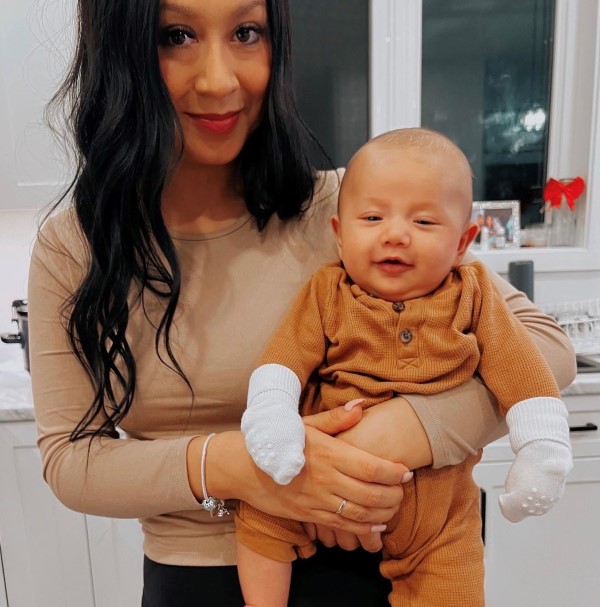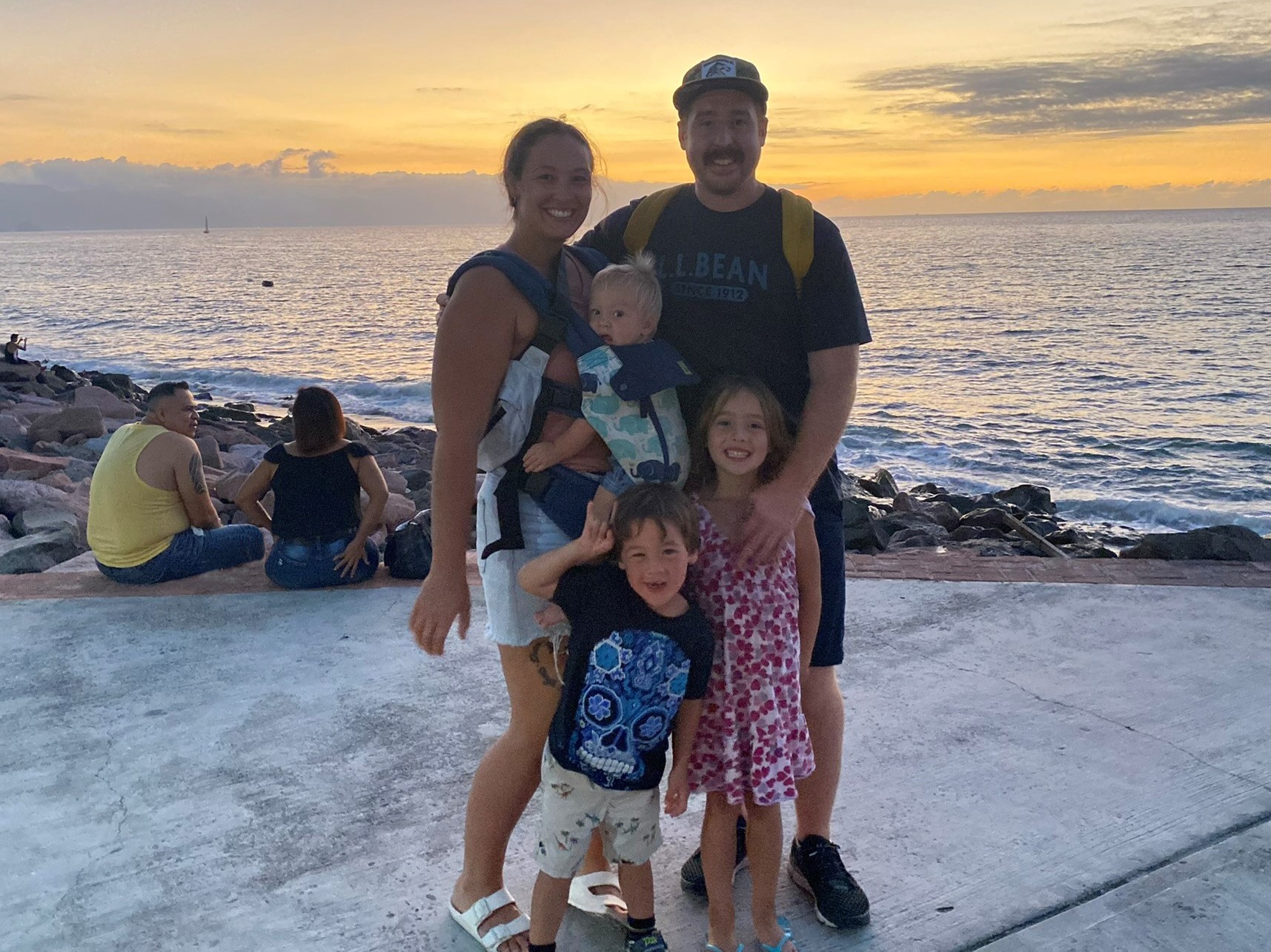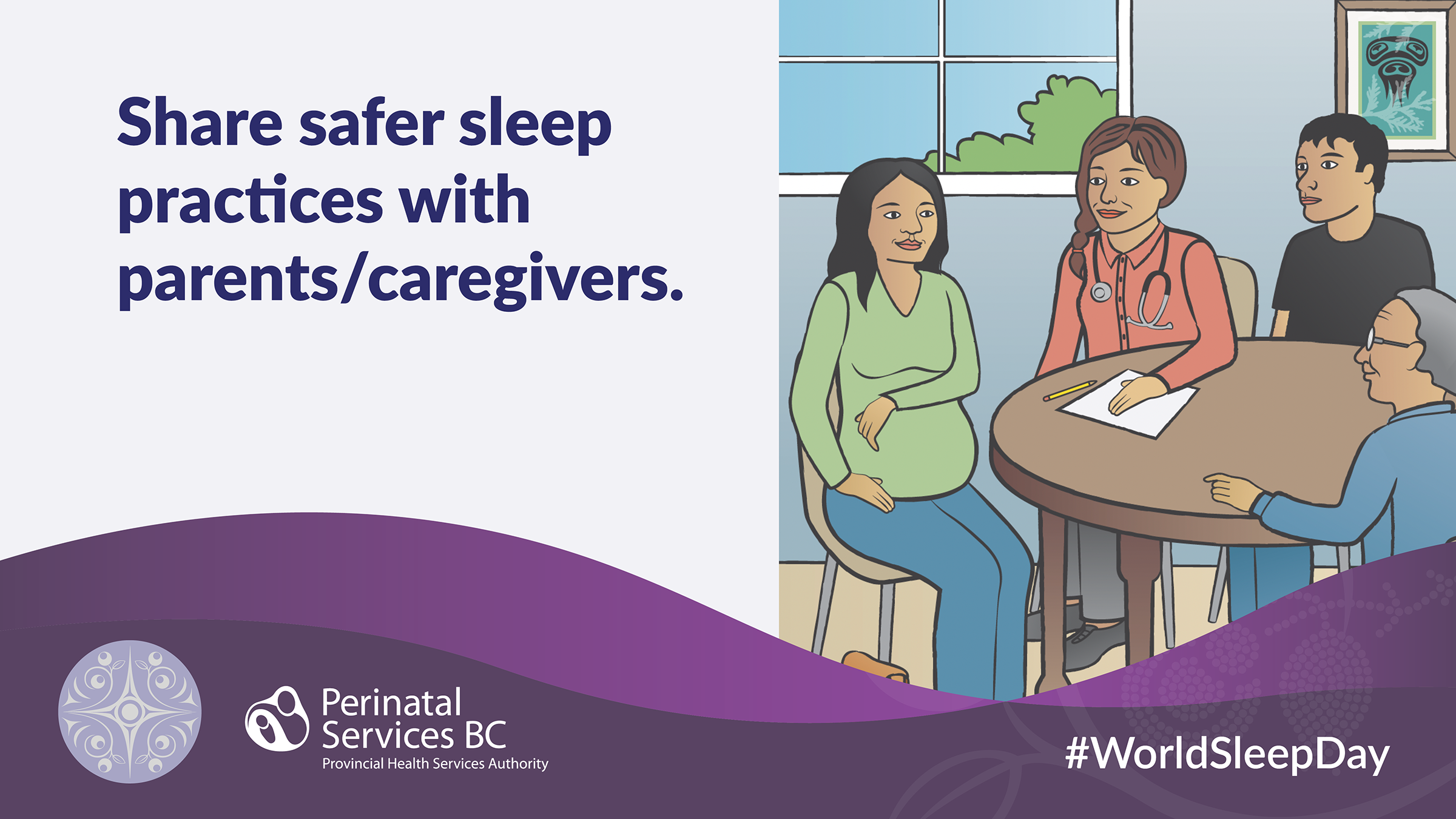 Lasha McIntyre is a member of Skuppah First Nation, in the territory of the Nlaka'pamux Nation. Lasha credits her mother and sister-in-law for teaching her about infant safer sleep practices.
Lasha McIntyre is a member of Skuppah First Nation, in the territory of the Nlaka'pamux Nation. Lasha credits her mother and sister-in-law for teaching her about infant safer sleep practices.
“My mother encouraged me to have our baby, Tucker, sleep in a bassinette, rather than in the same bed as my husband and I,” said Lasha. Lasha’s sister-in-law gave her a bassinette so she could get Tucker used to sleeping on his own right away.
Heather Storkan is a member of the First Nations community of St’uxwtews, colonially known as Bonaparte First Nation, in the Secwepemc Nation. Her grandfather was from Nlaka'pamux Nation.

Heather got a crash course in safer infant sleep from Neonatal Intensive Care Unit nurses when her first child was born prematurely. “They told me not to use heavy blankets and to put my baby, Myla, to sleep on her back,” said Heather. A family member recommended a bed-side bassinette.
To promote safer infant sleep, swaddling newborns for sleep has been increasingly discouraged by perinatal experts. Swaddling is an unsafe sleep practice that may increase the risk of overheating and may increase the risk of sudden, unexpected infant death during sleep. Despite being shown how to swaddle after giving birth, both Lasha and Heather chose to forego the practice.
“I tried it twice but Tucker hated it, so I stopped,” said Lasha.
“I always worried that my babies would pull the blanket over their face,” said Heather.
For families that may not have had conversations about safer sleep practices, the refreshed
Honouring our Babies Safer Sleep Toolkit: 2023 serves to bridge that gap. The updated resource was informed by Indigenous family members, Elders, and a variety of health-care providers including midwives, registered nurses, birth workers and Doulas. The toolkit is an update from the Honouring Our Babies: Safe Sleep Cards: Facilitator Guide 2017.
Health-care providers are in a position to help guide and coach new parents when it comes to topics like safer sleep practices. With that in mind, the toolkit is intended to support providers in their discussions with Indigenous families during the preconception, pregnancy and postpartum period. The toolkit encourages providers to use a harm-reduction approach that is person and family centred, trauma informed and culturally safe.
The toolkit includes:
- A series of illustrated cards with visuals and detailed information to support providers in conversations on safer sleep practices
- A Facilitator’s Guide with detailed information to support the use of the cards
“We have learned that Indigenous infants are disproportionately impacted by sudden, unexpected infant death during sleep. While there is no single sleep option that completely eliminates the risk of sudden, unexpected infant death during sleep, there are evidence-based recommendations to share with parents and caregivers about safer infant sleep practices,” said Jessi Minibarriet, Perinatal Services BC’s provincial lead, Indigenous Health, and one of the leads who worked on the refreshed toolkit.
Repeated safer sleep conversations can help support families in making informed choices regarding their infant’s sleep practices, and could help to substantially reduce overall rates of sudden, unexpected infant death and accidental deaths (for example, by suffocation).
“The refreshed toolkit emphasizes the importance of health-care providers approaching their clients with respect of their cultural needs. It encourages informed shared decision making on safer sleep with a focus on the strengths of Indigenous knowledge, cultural values and practices, using a two-eyed seeing approach” said Lea Geiger, Perinatal Services BC’s provincial clinical coordinator, Maternal Infant Health.

The messaging and design has been updated to align with the
Honouring Indigenous Women's and Families Pregnancy Journeys, with inclusion of the
4 R's of Cross-Cultural Dialogue: Respect, Relevance, Reciprocity and Responsibility; and the 6 Key Principles to providing Culturally Safe, Humble, Trauma-Informed perinatal care: Cultural Safety and Cultural Humility, Self-Determination, Trust Through Relationship, Respect, Anti-Indigenous Racism, Strength and Resilience-Based Practice.
To introduce the refreshed Safer Sleep toolkit, PSBC hosted a Zoom webinar on March 16, from noon to 1 p.m for clinicians and staff members. If you missed the webinar, a link to the recording will be made available on the
Safe Sleep Toolkit webpage shortly.
Health-care providers are encouraged to review the refreshed toolkit to ensure their conversations on safer sleep practices recognize and respect their clients’ cultural needs.
- View the refreshed toolkit on the PSBC Indigenous Resources Safe Sleep Toolkit webpage
- For more information about the Safe Sleep Toolkit or webinar, please contact Perinatal Services BC.

